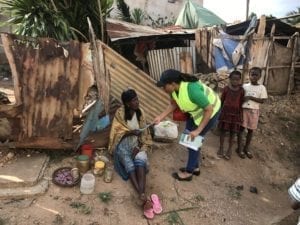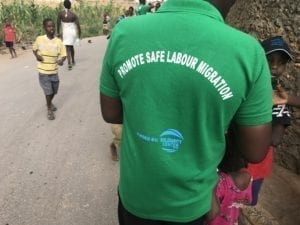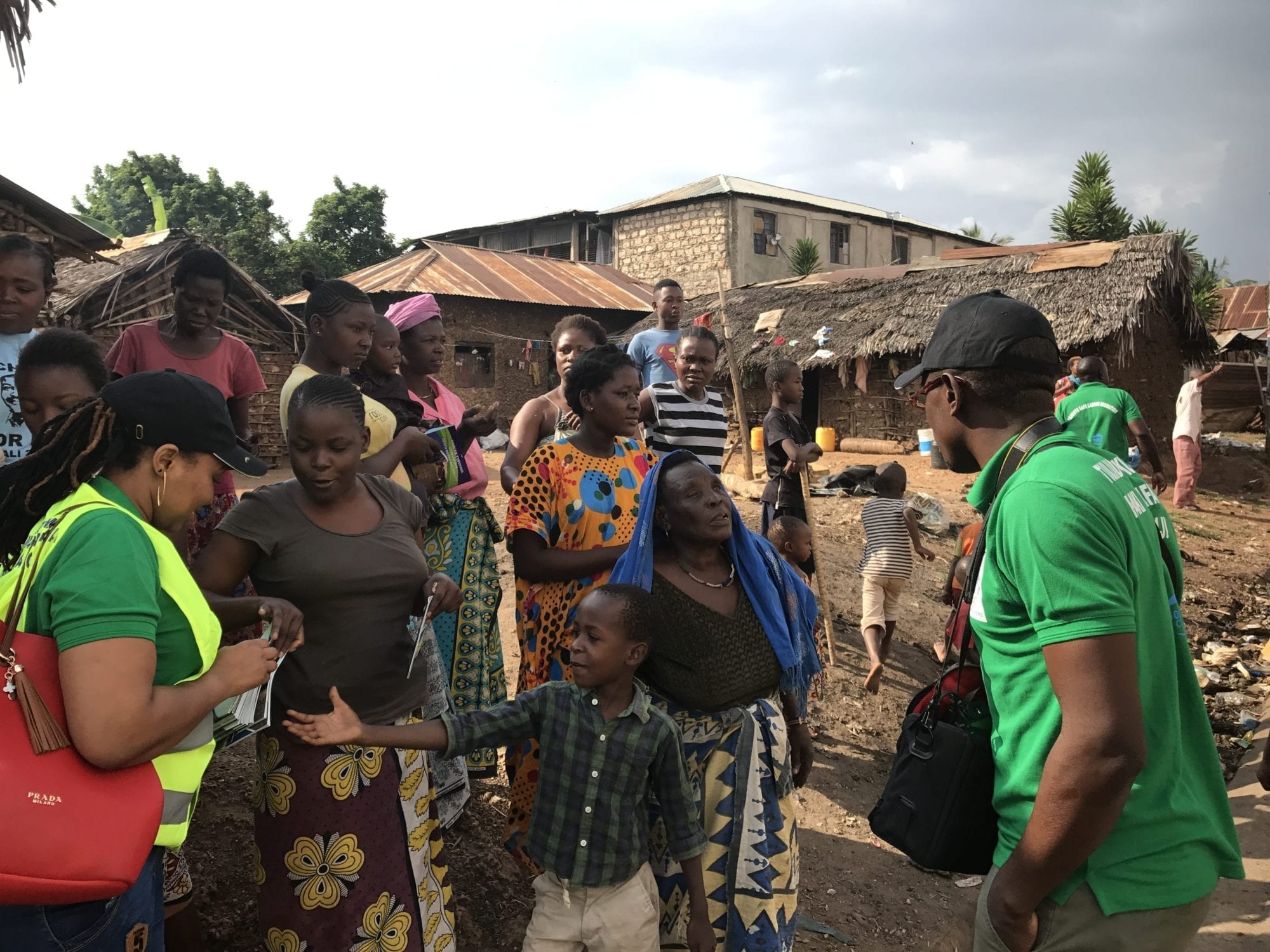Some 200 people from the Kisauni neighborhood in Mombasa, Kenya, took part in a forum on migrant worker rights Saturday, where those who had gone abroad for work described the harsh conditions they endured and how the labor brokers who signed them up often lied about the wages they would receive and the type of work they would do.
The July 22 forum was the second in a series sponsored by long-time Solidarity Center partner, the Kenya Union of Domestic, Hotel, Educational Institutions, Hospitals and Allied Workers (KUDHEIHA), and two local migrant worker and anti-human trafficking organizations, TRACE Kenya, Haki Africa and the Kenya National Commission on Human Rights.
In Kenya, where 2.5 million people toil in irregular, precarious jobs compared with 900,000 in the formal sector, many workers are unable to support their families and so become targets for the labor brokers who haunt villages, towns and cities.

KUDHEIHA organizers went door to door to encourage Mvita residents to attend the forum on migrant worker rights. Credit: Solidarity Center/Deddeh Tulay
Unscrupulous labor brokers will promise higher wages than what workers will be paid, describe working conditions far less grueling than reality, and do not show workers their contracts until they are at the airport or bus station. Frequently, the contracts are written in Arabic or a language the workers cannot understand, and the contracts may even change after they arrive at their destinations.
Although many workers in and around the Mombasa area travel abroad for jobs, primarily to Arab Gulf countries, customs or embarrassment may prevent them from sharing their experiences, and many residents do not have access to credible information on migration. As a result, communities are unaware of the hazards involved in migrating for work, says KUDHEIHA Organizing Secretary Teresa Wabuko.
“Village elders are shocked at how many people from their area have left for work. Information is important to convey to them so they understand the problem,” says Wabuko.
KUDHEIHA, which has long organized domestic workers throughout Kenya and has won national legislation improving domestic workers’ wages, benefits and working conditions, recently launched the campaign in Mombasa to reach domestic workers before they migrate and after they return.

Credit; Solidarity Center/Deddeh Tulay
In setting up the forums, KUDHEIHA met with village elders, youth and local government officials. The village elders and other grassroots leaders took ownership of the programs, assisting in mobilizing their communities and speaking at the forums.
“These are issues affecting their sisters, these are issues affecting their brothers, their family,” says Wabuko. “To learn from them the best way to carry out the whole exercise successfully.”
Before the event, KUDHEIHA organizers went door to door to provide people with information about the forum and invite them to join.
“Accomplishing gains for domestic workers [in Kenya] seemed impossible, but it was done,” says Livingstone Abukho, KUDHEIHA Mombasa chairman. “Therefore, it can be done for migrant workers.”

